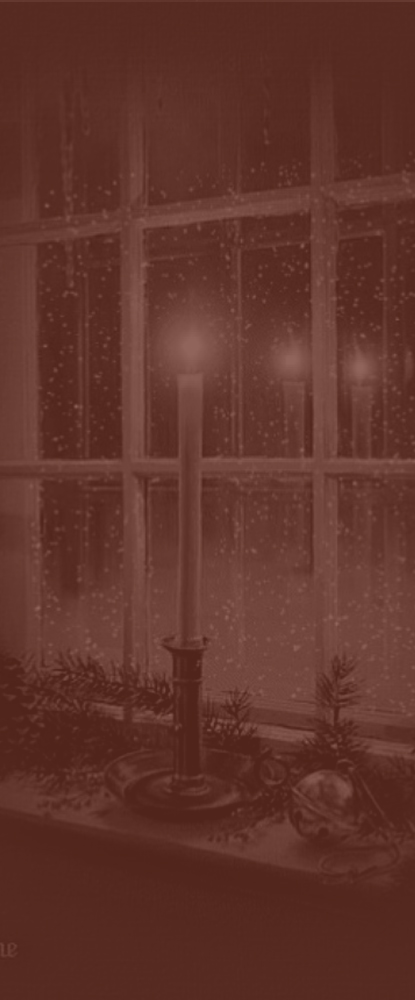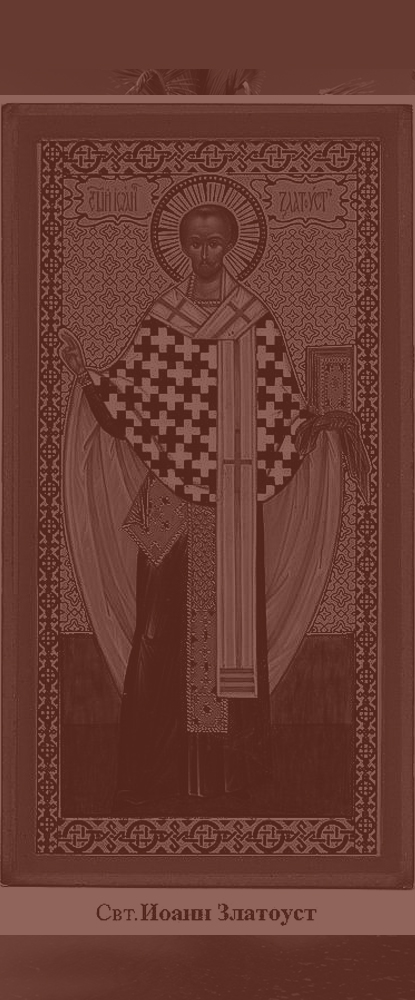SERMON ON THE 27TH SUNDAY AFTER PENTECOST
Archpriest Sergiy Baranov
The Solovetsky Monastery
10.12.2023
In the name of the Father, and of the Son, and of the Holy Spirit!
In today’s Gospel, we listened to a story about how the Lord healed a poor woman, who had suffered from a grave disease for a long time. The Lord freed her from this grave suffering, but the Jews, who surrounded Him, had become so hard-hearted that they did not rejoice at this, nor did they sympathize with that woman, who was suddenly relieved from that overwhelming burden of suffering. They judged the Lord instead. They judged the Lord because He violated the Sabbath, He healed on that day.
The Lord acts for those damaged people through their conscience. He admonishes them, touching their hardened conscience. All of a sudden, even their conscience comes to life and, as the Gospel says, they “were put to shame,”1 they were ashamed. Suddenly, their conscience, that was almost dead, woke up, and they felt shame. Conscience is the voice of God in a person. Often, inside of a person, where almost everything that belongs to God is damaged, there is still a very thin voice of God, which acts through his or her conscience.
Once, the teacher of St Symeon the New Theologian, St Symeon the Most Reverent, instructing his disciple, said the following, “Listen to the voice of conscience throughout your life and pray without ceasing, then you will succeed.” It seems to be the only thing that remains relatively not damaged, and meant to hear God.
I am using the word “relatively” because only a few moments ago, during the Cherubic Hymn, the priest in the altar said the secret prayer, which has the following words, “purge me of a wicked conscience.”2 These words are horrifying because it turns out that our conscience, together with all the powers of our soul created by God, is damaged. It is damaged and perverted. This is why the priest says these words at the crowning moment of the Liturgy, “Lord, purge me of a wicked conscience.” It turns out that after the Fall, even this Divine power of conscience becomes damaged in people and satan can enter even this power of the human soul. He does not enter in some extraordinary way, in contradiction or in contrast not to draw our attention to him, but he does it gently and parasitizes on the gift of conscience. He does not contradict conscience, so the person will not turn away from him at once, but acts simultaneously with it, very close, step by step, and then perverts it slightly. After the Fall, even basing on their conscience, people often make mistakes. Unfortunately, even this gift is damaged within us.
Shortly before His Calvary, the Lord told His disciples the words that might seem very strange for many people, “Assuredly, I say to you that there are some standing here who will not taste death till they see the Kingdom of God present with power.”3 The contemporaries of Christ thought His second coming would be already in the first century, when the witnesses of His life, people who were close to Him, were still alive. Many Christians wonder about the words of Christ. In the Gospel, right after these words were said, the following event happened. The Lord takes three of His close disciples, whom He loved very much, ascends Mount Tabor together with them and transfigured before them in all of His glory. This is what the Lord says about, “Assuredly, I say to you that there are some standing here who will not taste death till they see the Kingdom of God present with power.” This was the Kingdom of God in its power, and the disciples saw it through the Holy Transfiguration on Holy Mount Tabor. They were in the Uncreated Light, in the abundance of Divine Grace, and this was the Kingdom of God present with power.
The Venerable Symeon the New Theologian says responsible and, to an extent, horrible words to every one of us, “If you did not have your own transfiguration and did not meet the Lord in this life, then this meeting is very doubtful in the future life.” This life is given to us so we, having applied effort in fulfillment of the commandments, in the mystery of prayer, met our own transfiguration already in this life. Without this transfiguration it will be difficult for us to enter the Kingdom of God after our death. Because we will not be suitable for the Kingdom of God. We will be a foreign body there, and the Kingdom of God will become hell for us.
Our purpose is to transfigure everything already in this life and do this with the help of Divine Grace, through our Lord Jesus Christ. We should transfigure all perverted powers of our soul, including, or first of all, our conscience. Conscience transfigures only through the Grace of God. The things which are impossible with men are possible with God.4 Those who try to rely only on their effort, sincerity, stability, and feat, are wrong. They will stumble and acquire nothing. Everything is made by the Grace of God, which we acquire as per our Venerable Father Seraphim of Sarov. The purpose of a Christian life is in acquiring the Grace of God. Acquire it without ceasing. This is the aim of a Christian life. It should not consist only of moral life, we should always and everywhere acquire the Grace of God. Father Seraphim lists many means, which help to acquire Divine Grace, but ends with these words, “However, prayer gives more Grace than anything else.”
Glory to our God, always, now, and unto the ages of ages!
1 Lk. 13:17
2 “Look upon me Thy sinful and unprofitable servant, and purge my soul and heart of a wicked conscience…” (The Divine Liturgy of St John Chrysostom)
3 Mk. 9:1
4 Lk. 18:27

